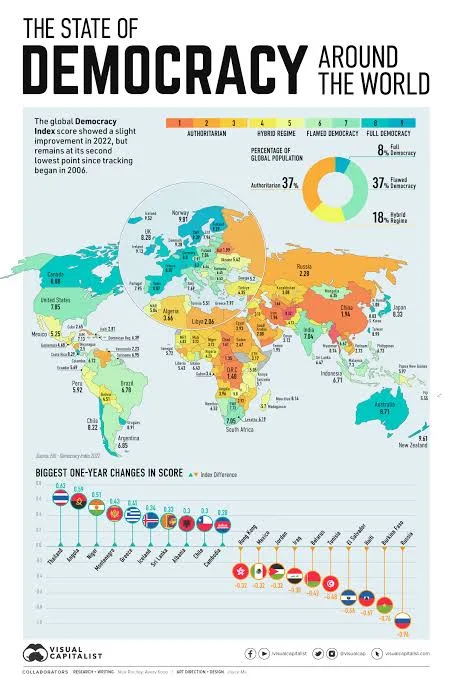London- UK– July 16, 2025 –
The world stands at a critical juncture, grappling with a complex web of interconnected global challenges that threaten to unravel decades of progress. Persistent extreme poverty, widening income disparities, and the alarming decline of democratic systems are not merely isolated issues but rather symptoms of deeper systemic vulnerabilities that demand urgent and coordinated international attention.
The Stark Reality of Poverty and Inequality:
Despite global efforts, the specter of extreme poverty continues to haunt millions. A staggering 659 million individuals worldwide currently survive on less than $2.15 per day, struggling for basic necessities and living on the precipice of survival. This figure, while showing some decline from pre-pandemic levels, remains unacceptably high and signifies a profound failure to ensure a basic standard of living for all. The COVID-19 pandemic, in particular, dealt a significant blow to poverty reduction, reversing progress for the first time in a generation and pushing an additional 71 million people into extreme poverty in 2020 alone.
Compounding this crisis is the escalating problem of income disparity. Recent reports highlight a disturbing trend: the wealthiest 1% of the global population has amassed nearly two-thirds of all newly generated wealth since 2020.

This unprecedented concentration of wealth not only exacerbates social and economic tensions but also undermines the very foundations of equitable development.
The widening gap between the rich and the poor is not just an economic concern; it has far-reaching implications for social cohesion, political stability, and ultimately, global peace.
The Erosion of Democratic Systems:
Intricately linked to economic inequality is the observed decline in democratic systems around the world. Research strongly indicates that the more unequal the income distribution in a democracy, the higher the risk of democratic erosion. This connection is multifaceted:
* Loss of Trust and Legitimacy:
When citizens perceive that the economic system disproportionately favors a small elite, and that governments are more responsive to the preferences of the wealthy, trust in democratic institutions diminishes. This leads to widespread disillusionment and a feeling that the system is rigged against ordinary people.
* Increased Polarization:
Economic grievances can fuel partisan polarization, as populations become divided along lines of economic privilege and disadvantage. This creates fertile ground for populist and authoritarian leaders who exploit these frustrations, often by scapegoating specific groups or institutions.
* Undermining Accountability:
In highly unequal societies, the wealthy can exert undue influence over political processes, shaping policies to their benefit and making governments less accountable to the broader public. This can manifest in various ways, from lobbying efforts to the direct funding of political campaigns.
* Weakening Institutions:
Leaders who capitalize on public discontent, often fueled by inequality, may systematically undermine democratic norms and institutions such as the judiciary, the press, and even electoral processes, to consolidate their power.
The consequences are dire: a weakening of the rule of law, a decline in civil liberties, and a growing susceptibility to authoritarian tendencies. Even established and affluent democracies are not immune to this trend if they exhibit high levels of inequality.
The Interconnectedness of Crises:
These global challenges are not isolated phenomena but rather deeply intertwined. Extreme poverty creates fertile ground for instability and social unrest, as marginalized populations, lacking basic resources and opportunities, become more vulnerable to exploitation and radicalization. Income disparity further exacerbates these tensions, leading to a breakdown of social trust and a sense of injustice. In turn, declining democratic systems, characterized by a lack of accountability and responsiveness, struggle to address these deep-seated economic and social issues effectively, perpetuating a vicious cycle.
The Path Forward: Collective Action and Systemic Change:
Addressing these monumental challenges requires a concerted and multi-pronged approach from the international community, governments, civil society, and individuals.
Key areas of focus must include:
* Poverty Eradication: Renewed commitment and innovative strategies are needed to accelerate progress toward ending extreme poverty. This includes robust social protection programs, investments in education and healthcare, and fostering inclusive economic growth that reaches the most vulnerable.
* Combating Income Inequality:
Policies aimed at redistributing wealth and opportunity are crucial. This could involve progressive taxation, strengthening labor rights, promoting fair wages, regulating financial markets, and ensuring equitable access to essential services and resources.
* Strengthening Democratic Governance:
Efforts to bolster democratic institutions must focus on enhancing transparency, accountability, and citizen participation. This includes combating corruption, protecting civic space, promoting media freedom, and fostering inclusive political processes that truly represent the diverse voices of the populace.
* International Cooperation:
Global challenges demand global solutions. Enhanced international cooperation is essential for fair trade, sustainable development, debt relief for developing nations, and coordinated efforts to address cross-border issues that exacerbate poverty and instability.
The future of global stability and human well-being hinges on a collective commitment to addressing these pressing issues. The time for piecemeal solutions is over; what is needed now is a fundamental shift towards more equitable, inclusive, and democratic global systems that prioritize the dignity and prosperity of all. The choices made today will determine the trajectory of the world for generations to come.
